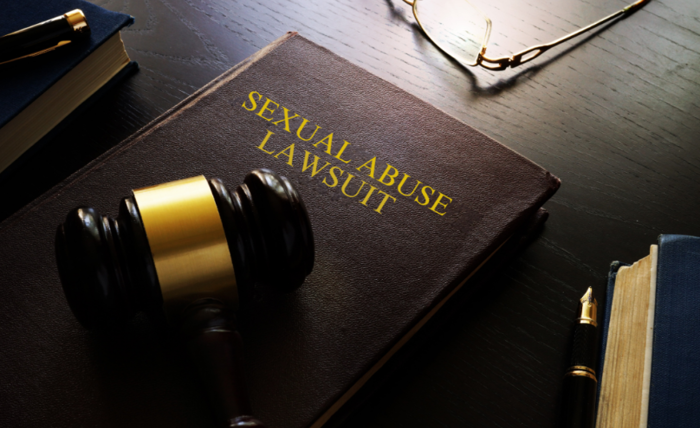
Rideshare apps have revolutionized transportation, but when trust is violated during what should be a routine trip, the aftermath can be devastating. Being assaulted by a driver you expected to get you home safely is not just a personal betrayal—it’s a legal matter that deserves serious attention.
If you or someone you love has experienced this trauma, you may feel overwhelmed, confused, and unsure of where to turn. You’re not alone, and help is available. An experienced Uber and Lyft sexual assault lawyer can help you receive compensation, guide you through the legal process, and fight to hold the responsible parties accountable.
These incidents raise important questions about your rights, the responsibilities of rideshare companies, and what steps you can take next. In this article, we’ll explore how a lawyer can assist you after such an assault, the legal options available, and how to begin rebuilding your life with the support you deserve.
How a Lawyer Can Help
Experiencing assault by an Uber or Lyft driver can leave victims dealing with not only physical and emotional trauma but also complex legal challenges. A personal injury or sexual assault lawyer can provide crucial support by navigating these legal complexities and helping victims assert their rights.
Understanding Legal Liability
One of the first steps a lawyer will take is to identify who can be held liable for the assault. In many cases, this includes the individual driver. However, depending on the circumstances, Uber or Lyft may also be held responsible under theories of negligence or failure to properly screen their drivers.
Although both companies classify their drivers as independent contractors, courts have increasingly scrutinized this status. If it can be shown that the company knew—or should have known—about a driver’s violent tendencies, they may be held accountable for their failure to act.
Reviewing Rideshare Company Policies
Uber and Lyft have internal safety standards and background check policies. However, these policies are not foolproof. An attorney can evaluate whether the rideshare company failed to conduct adequate background checks, ignored red flags, or failed to respond to previous complaints.
For example, California’s Public Utilities Code § 5445.2 requires transportation network companies to conduct criminal background checks and disqualify drivers convicted of certain violent felonies. Failure to comply with such statutes can be used to establish liability.
Preserving Critical Evidence
Evidence is crucial in rideshare assault cases. A lawyer can help secure key forms of evidence, including:
- Trip data and GPS records
- App-based communication between the driver and rider
- Surveillance footage from nearby businesses
- Previous passenger complaints against the driver
- Police reports and medical documentation
Preserving this evidence early can make a significant difference in building a strong case and negotiating a favorable settlement or court award.
Helping You Navigate the Legal Process
Filing a lawsuit against a rideshare driver—or the company itself—can be complex. A lawyer will handle the legal paperwork, manage court deadlines, and deal with insurance companies on your behalf. This allows you to focus on recovery while your attorney pursues justice.
Depending on the facts of your case, your attorney may pursue claims such as:
- Negligence
- Negligent hiring or supervision
- Premises liability (if the assault occurred at a pickup/drop-off location)
- Intentional infliction of emotional distress
- Battery and sexual assault
Seeking Compensation for Damages
Victims of rideshare assaults may be entitled to a range of damages, including:
- Medical expenses (including ongoing therapy and mental health care)
- Lost wages and future earning potential
- Pain and suffering
- Emotional distress and trauma
- Punitive damages in cases of gross negligence or misconduct
Your lawyer will work with medical experts, therapists, and financial professionals to fully quantify your damages and ensure you seek an amount that reflects the full impact of your experience.
Statute of Limitations
Each state has specific deadlines—known as the statute of limitations—for filing personal injury or assault claims. In many states, the timeframe ranges from one to three years from the date of the incident. If the victim is a minor or if the assault involves suppressed memories, some exceptions may apply.
Failing to act within this timeframe can bar you from pursuing a claim, which is why consulting a lawyer as soon as possible is critical.
The Emotional Impact and Legal Support
No amount of legal action can erase the trauma of assault. However, the legal system does offer a path to justice and healing. Working with a knowledgeable lawyer not only helps protect your rights but can also bring a sense of closure by holding the responsible parties accountable.
In addition to financial recovery, many survivors find strength in standing up against systemic failures and helping raise awareness about safety issues in the rideshare industry.
Final Thoughts
Being assaulted by a rideshare driver is a violation that no one should experience. As laws shift and awareness grows, legal systems are slowly adapting to hold companies and individuals accountable. Working with a lawyer ensures you have someone in your corner—someone who understands the legal system, your trauma, and your right to justice.



